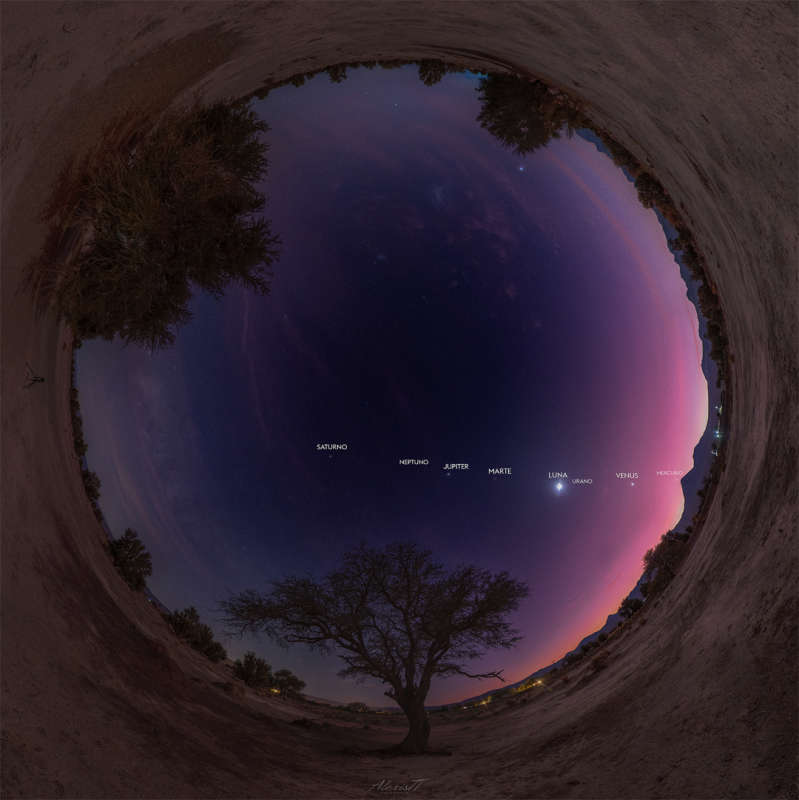
|
Credit & Copyright: Alexis Trigo
Explanation:
Yes, but have you ever seen all of the planets at once?
A rare roll-call of planets has
been occurring in the morning sky for
much of June.
The featured fisheye all-sky image, taken a few mornings ago near the town of
San Pedro de Atacama in
Chile,
caught not only the entire planet parade, but the Moon between Mars and Venus.
In order, left to right along the
ecliptic plane,
members of this
Solar System family portrait are
Earth,
Saturn,
Neptune,
Jupiter,
Mars,
Uranus,
Venus,
Mercury, and
Earth.
To emphasize their locations, Neptune and Uranus have been artificially enhanced.
The volcano just below Mercury is
Licancabur.
In July, Mercury will move into the Sun's glare but
reappear a few days later on the evening side.
Then, in August,
Saturn will drift past the direction
opposite the Sun
and so become visible at dusk instead of dawn.
The next time that all eight planets will be
simultaneously visible in a morning sky will be in 2122.
Notable Submissions to APOD:
Morning Planet Parade 2022 June
|
January February March April May June July August September October November December |
| ||||||||||||||||||||||||||||||||||||||||||||||||
NASA Web Site Statements, Warnings, and Disclaimers
NASA Official: Jay Norris. Specific rights apply.
A service of: LHEA at NASA / GSFC
& Michigan Tech. U.
Based on Astronomy Picture
Of the Day
Publications with keywords: Solar System - planetary alignment
Publications with words: Solar System - planetary alignment
See also:
- APOD: 2025 September 14 Á Planets of the Solar System: Tilts and Spins
- APOD: 2025 March 31 Á Parker: The Solar System from Near the Sun
- Solar System Family Portrait
- APOD: 2023 March 26 Á Wanderers
- Planets of the Solar System: Tilts and Spins
- The Solar System s Planet Trails
- Planets of the Solar System
